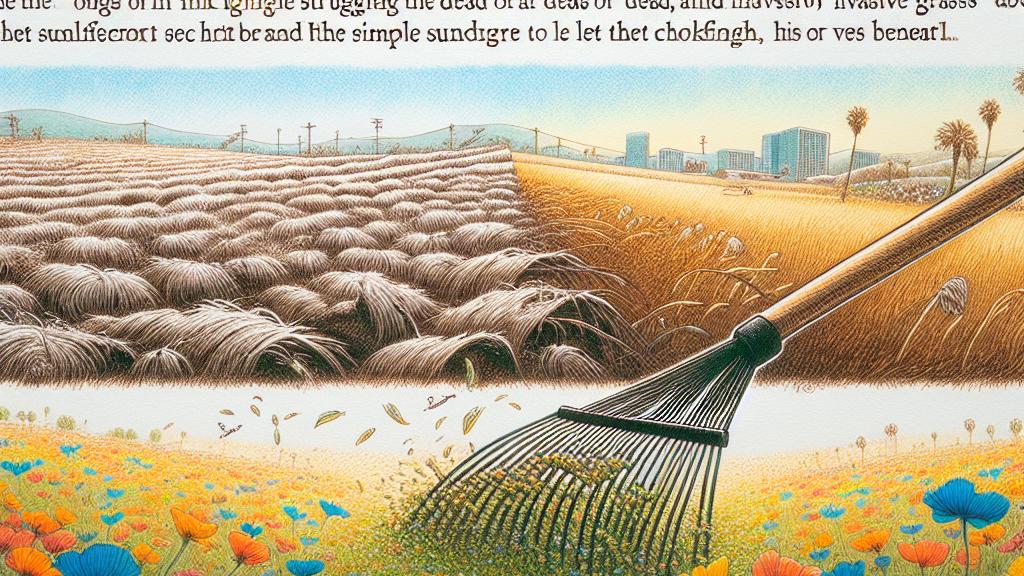Simple Ways to Help California's Wildflowers Thrive
Overview
- Research unveils that a simple raking technique can significantly boost California's native wildflower populations.
- This method is affordable, less labor-intensive, and ecologically beneficial compared to traditional approaches.
- By removing invasive grass thatch, raking allows sunlight to nourish seeds, promoting their growth and survival.

The Battle for California's Wildflowers
California’s stunning wildflowers are finding themselves in a tough situation as they struggle against dense layers of dead, invasive grasses. These invasive species don’t just spread; they suffocate the native flora, preventing it from blossoming. But there’s good news! A remarkable study from the University of California, Riverside has discovered that a simple act—raking—can turn the tide. By raking away thatch, researchers enable sunlight to reach the dormant seeds below, allowing them to germinate and thrive. Just envision vast fields once again alive with the vibrant colors of wildflowers—what a beautiful sight that would be!
The Science Behind Raking
In a groundbreaking experiment, scientists set up paired plots—one raked and one untouched—and observed the changes over three years. The results were nothing short of astonishing! Raking increased plant diversity significantly, nearly eliminating invasive grasses like ripgut brome, which can be problematic for grazing animals. Not only did native wildflowers increase by approximately 5%, but exotic forbs also surged by as much as 10%. Such diversity isn’t merely a number; it’s a testament to the resilience of nature when given a chance. Think of the relief these native species must feel, finally free from their suffocating neighbors, and ready to reclaim their rightful place in the ecosystem.
Empowerment Through Student Engagement
What truly elevates this research is its roots in student-led initiatives. During the pandemic, a group of dedicated UCR students revived abandoned study plots, transforming them into active research sites. Their hands-on approach involved over 25 students, showcasing how collaboration breeds innovation. From writing research protocols to identifying various plant species, these undergraduates gained invaluable experience, stepping up as eco-warriors in their communities. Their initiative not only enriched their education but also offered a sterling example of how youth can lead meaningful change. This project illustrates that when young minds unite around a cause, the impact can be profound and far-reaching!
The Ripple Effect of Restoring Wildflowers
You might be wondering—why is boosting wildflower populations so imperative? The answer lies in their vital contributions to maintaining healthy ecosystems. Native wildflowers are not just pretty faces; they provide essential nutrients and habitats for wildlife while supporting indispensable pollinators like bees and butterflies. Additionally, restoring these plants helps combat soil erosion and enhances biodiversity, fostering a balanced environment. Invasive grasses increase wildfire risk due to their dense, flammable nature. This research highlights that small actions, like raking, can enact significant change in promoting ecological health. By embracing these findings, we can empower not only our landscapes but also future generations to appreciate and protect California’s natural wonders.

Loading...